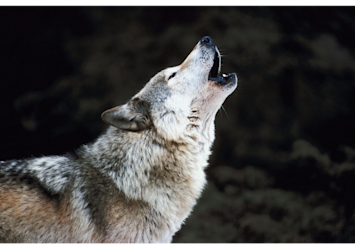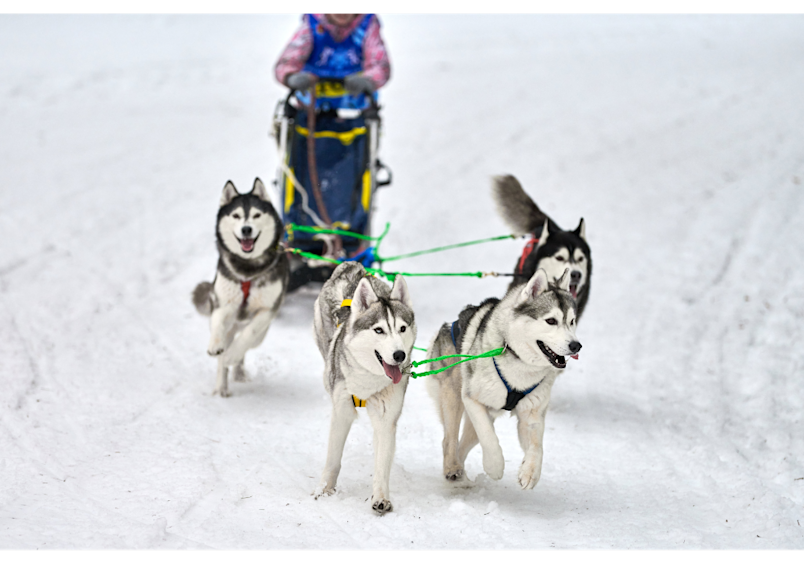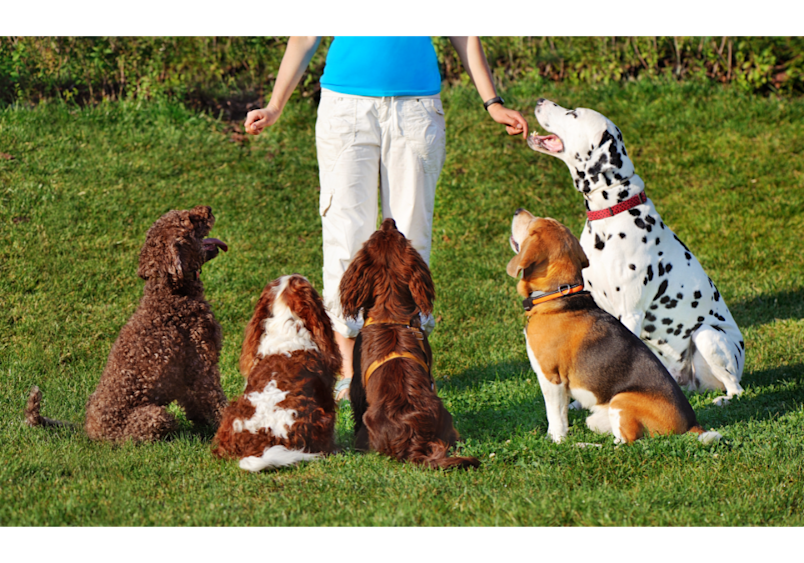
Have you ever been startled awake by your dog's howl in the middle of the night? That sound isn't random—it's a 15,000-year-old conversation you're finally invited to join. Every howl carries meaning. Whether your dog responds to sirens, calls for attention, or expresses separation anxiety, they're using the same communication system their wolf ancestors perfected for survival. This ancient language reveals your dog's emotional state, needs, and instincts in ways barking simply can't match. Let’s discover when howling is totally normal and when it's time to call in the pros, plus learn to speak your dog's language like never before!
What Does It Mean When Your Dog Howls?
While many owners focus on why dogs howl, it's equally important to understand the different types of howling and what they indicate. Recognizing these patterns helps you better interpret your pet's vocalizations and respond appropriately. Understanding your dog's breed tendencies can also help you anticipate their vocal behaviors.
Attention-seeking howling occurs when dogs quickly learn that howling gets a response—whether it's petting, treats, or simply being noticed. This type of howling often occurs when the dog wants something or is bored and wants interaction. Dogs howl to attract attention and announce their presence to their human family members.
Communication howling helps dogs signal their presence, especially if they are separated from their pack or owner. For example, a dog might howl when a neighbor's dog is howling, creating a chain reaction in the neighborhood, or when they hear their owner approaching the house. This behavior helps dogs make contact with others and maintain social connections. When you howl, your dog often joins in enthusiastically—they're responding to what they perceive as communication from their human pack leader, showing they want to participate in family activities.
Environmental sound responses are triggered by high-pitched noises like sirens, alarms, musical instruments, or certain frequencies. Contrary to popular belief, dogs don't howl at sirens out of frustration; they likely interpret the high-pitched sound as another dog's howl. This is often a reflexive response, similar to contagious yawning in humans. Most dogs stop howling when the siren fades from earshot.
Emotional expression and separation anxiety are among the most common reasons dogs howl, particularly when left alone for extended periods. Some dogs feel loneliest at night and may miss you, hoping you'll howl back to let them know where you are. Howling is also a normal way for dogs to express joy, whether someone gave them a cookie or they're reunited with their owners after months (or minutes that feel like months!) apart. Excitement during play or reunion is different from persistent howling when alone, which suggests separation anxiety.
Territorial or defensive howling serves as a warning to other animals or intruders to stay away. Some breeds, like Huskies or Beagles, have a strong instinct to defend their territory through this vocal behavior.
Breed-specific howling behavior is more common in certain breeds due to their historical purposes and genetic makeup. Hunting breeds like Beagles, Bloodhounds, and Coonhounds have been selectively bred to howl as an alert system, notifying their handlers when they've detected prey or intruders. Meanwhile, "wolfy" breeds such as Siberian Huskies, Alaskan Malamutes, and American Eskimos have a genetic predisposition to howling that stems from their wolf ancestry and historical roles in sled pulling and pack communication. These breeds typically exhibit more frequent and expressive vocalizations compared to other dog breeds, using howling as part of their natural communication patterns.

When Should Dog Howling Become a Concern?
While dog howling meaning varies, excessive or abnormal howling can indicate underlying issues:
Separation anxiety: Dogs left alone may howl persistently to express distress or loneliness when separated from their owners. It can continue for hours, often accompanied by destructive behaviors like chewing, digging, or attempts to escape.
Medical issues or pain: This type of howling may sound more strained, occur at unusual times, or be accompanied by other symptoms like limping, loss of appetite, or changes in behavior.
Cognitive decline: Senior dogs may howl due to confusion, disorientation, or canine cognitive dysfunction, which is like dementia in humans. They can experience memory loss, altered sleep-wake cycles, and increased anxiety, leading to excessive vocalization including howling, especially at night.
If your dog's howling gets out of hand, happens way too often, or comes with other concerning behaviors, it's probably time to check in with your vet or a dog behavior expert. They can help determine if something's bothering your pup or if training will help.
How to Reduce Excessive Howling
Here are effective strategies to help manage and reduce unwanted howling:
For separation-related howling:
Take your dog for a long walk or play fetch before leaving so they're too tired to miss you.
Provide enrichment activities like feeding puzzles or toys to occupy their mind when alone.
Turn on the TV or radio so your dog hears voices, which may make them feel less lonely.
For general howling management:
Ignore attention-seeking howling: Do not reward your dog when they howl for attention. Instead, wait until they are quiet, then reward calm behavior.
Provide mental stimulation: Puzzle toys, training sessions, and interactive games can reduce boredom-related howling.
Exercise regularly: A tired dog is less likely to howl excessively.
Create positive associations: Use treats and praise when your dog remains quiet during typical howling triggers.
Establish a routine: Predictable schedules can reduce anxiety-related howling.
Managing triggers and separation anxiety involves desensitization techniques, such as gradually exposing your dog to sounds at a low volume and rewarding calm behavior, or providing a safe, quiet space during noisy events.
Consistency and patience are key. If behavioral techniques do not improve the situation, seek professional training or veterinary advice.

When to Seek Professional Help for Your Howling Dog
Persistent or severe howling, especially when associated with signs of pain, distress, or cognitive decline, should prompt a veterinary visit. Being prepared for these situations brings peace of mind, knowing that you can provide the best care for your furry family member when they need it most.
Having a pet insurance plan ensures you can focus on your dog's health without worrying about unexpected veterinary costs, while an optional wellness plan can be added to help you stay on top of routine care and early detection of issues.
If your dog's howling stems from an underlying medical condition, your plan helps with related veterinary costs and may even cover behavioral training for diagnosed conditions like separation anxiety, ensuring you can focus on your dog's health and wellbeing. A professional can rule out medical issues that may be why your dog is howling and recommend appropriate behavioral strategies or medications if necessary.
In most cases, howling is manageable behavior, and working with your vet or a positive reinforcement trainer can help you achieve a quieter and happier dog!
Your Next Steps for Understanding Why Dogs Howl!
So why do dogs howl? It's a complex behavior with roots in their wolf ancestry, serving various communication purposes—from alerting, expressing emotions, marking territory, to responding to environmental stimuli. Recognizing the context and type of howling can help you respond appropriately, whether that's providing enrichment, training, or medical care.
Key Takeaways:
Howling is an innate form of communication inherited from wolves
Breed, environment, and emotional state influence howling behavior
Not all howling is problematic; understanding causes helps manage it
Training, enrichment, and desensitization are effective tools
Consult professionals if howling becomes excessive or concerning
The next time your dog tilts their head back and lets out that haunting call, you'll know you're witnessing something magical—a direct line to their ancient past. Whether they're responding to sirens with confusion, serenading you during separation, or simply announcing "I'm here!" to the world, your dog is speaking in humanity's oldest shared language. That midnight howl isn't just noise disrupting your sleep; it's your dog inviting you into a conversation that began thousands of years before the first human ever said "good dog." And now that you understand their voice, you can finally answer back.